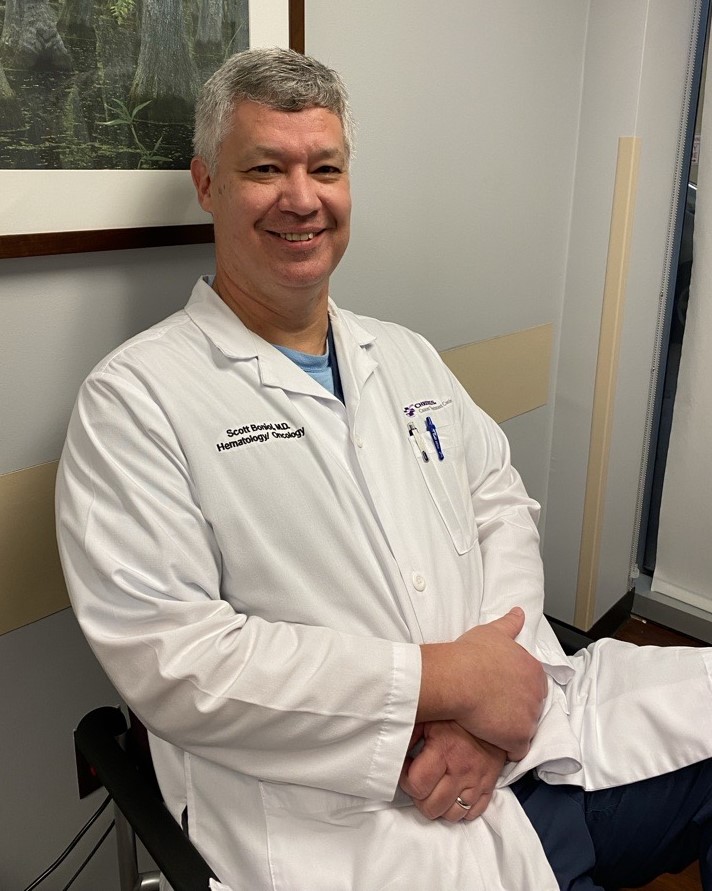SHREVEPORT, LA — In recognition of Lung Cancer Awareness Month this November, CHRISTUS Shreveport-Bossier Health System is raising awareness about lung cancer, the second most common cancer in both men and women in the United States, and the leading cause of cancer-related deaths, accounting for one in five of all cancer deaths, according to the American Cancer Society.
“Many individuals are diagnosed with lung cancer only after it has progressed,” said Dr. Scott Boniol, medical oncologist with CHRISTUS Shreveport-Bossier. “Regular screenings are essential for those at risk, as early detection significantly improves outcomes.”
Understanding Lung Cancer
Lung cancer, also known as pulmonary cancer, develops from abnormal cell growth in the lungs. These cells may originate in the airways or the small air sacs.
Risk Factors:
- Smoking is the leading cause of lung cancer, with risk increasing based on the duration and intensity of smoking.
- Quitting smoking can greatly reduce the risk of lung cancer.
Screening Recommendations
The U.S. Preventive Services Task Force recommends annual lung cancer screenings for adults aged 50 to 80 who:
- Currently smoke or quit smoking within the last 15 years.
- Have a smoking history of 20 pack-years or more.
Screenings involve a low-dose CT scan, a non-invasive X-ray that produces detailed images of the lungs, helping detect cancer before symptoms arise and allowing for a broader range of treatment options.
Symptoms of Lung Cancer
While early stages of lung cancer often show no symptoms, patients should be aware of the following warning signs:
- Persistent coughing, including coughing up blood.
- Shortness of breath.
- Chest pain.
- Hoarseness.
- Unexplained weight loss or loss of appetite.
- Fatigue or weakness.
- Recurrent infections, such as bronchitis or pneumonia.
Prevention Tips
Dr. Boniol emphasizes that prevention is critical:
- Quit smoking: This is the most effective way to lower the risk of lung cancer.
- Avoid secondhand smoke: Minimize exposure to environmental smoke.
- Adopt healthy habits: Maintain a balanced diet, exercise regularly, and undergo routine lung cancer screenings.
- Consult a primary care physician: Regular check-ups can help evaluate family history and other risk factors to determine if screening is necessary.
“Lung cancer is preventable and treatable, especially with early detection,” Dr. Boniol said. “We urge everyone to take proactive steps to protect their health.”
For more information about lung cancer or to find a primary care physician, visit CHRISTUSHealth.org.

